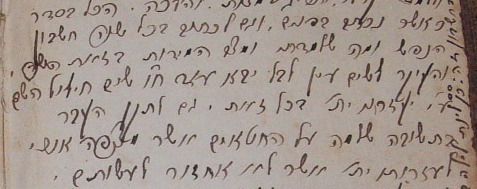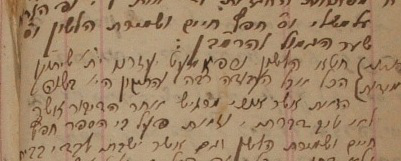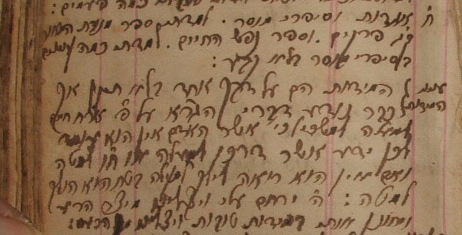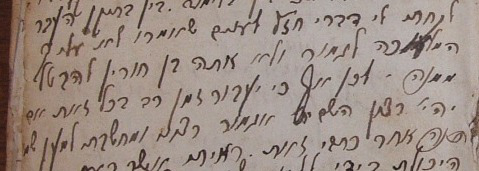After his return from the mission of buying lands in Eretz Israel, in Adar 5645 [February, 1885], Baruch Meir started a process of self-examination in his diary:
I then decided to watch all my doings in spirit and in studying the Torah in particular...
...and I should write every year, take a hard long look at my soul and what I have learned and my midot and behavior of that year...
... Tikun of the past, teshuva shlema for all the khata’im which I hope not to repeat with God’s help.
R’ Baruch Meir sets for himself ta’aniyot (penances, in Jewish terms, singular ta’anit) for tikun and teshuva shlema such as
study with no interruption for 3 hours standing up – one ta’anit, study with no interruption for 6 hours as above – 4 ta’aniyot, study 9 hours as above - 10 ta’aniyot, study 12 hours as above – 22 ta’aniyot. Also sleeping in Beit Hamidrash for the purpose of studying would count as one ta’anit.
He enumerates what Khata’im he wants to address by ta’aniyot:
I first have to correct the most serious of khata’im – profanation of God
I need to correct 8 khata’im that I acknowledge.
These are the khata’im of which I am not innocent: anger, pride, slander [literally: not watching one's tongue], mockery, lying, flattery, obscenity, disgracing, teasing, stealing; and robbing and trespassing. Idle thoughts while studying in Beit Hamidrash. And altogether: Studying the Torah for vanity and not for respect towards the holy Torah. And sinful thoughts while praying, praying and blessing without sincerity, only as lip service.
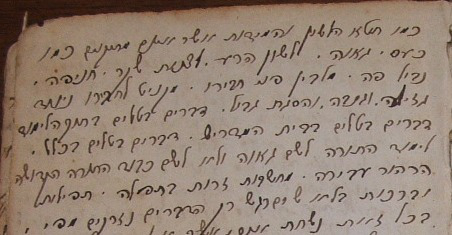 |
...These are the khata'im of which I am not Innocent...
(view context) |
Baruch Meir mentions specific books by Ha’Ramban that helped him in “watch his tongue [lashon] ”.
He mentions Books of Mussar [morals] and teachings of the GR”A [Gaon Rabbi Eliyahu]. And hopes:
God grant me good midot.
He continues:
...in writing the order of ta’aniyot, I adopted what our sages said: ‘it is not for you to finish the task. However you are not free to idle away from achieving it'
...therefore, even if it takes a long time – God willing, I will attain my goals in honor of His Name.
Baruch Meir admits in his diary that he was unable to keep up his own prescription of ta’aniyot, and reduced the amount of hours:
After writing all that, I saw that right now I am unable to study for long hours because of the heavy burden. The day is short and there is much work.
He records studying a page to know it by heart, finishing up a portion of Talmud and a chapter in the Bible while studying with friends.
He stresses the importance of studying with others: In a marginal note (written vertically; see diary page), he says this is like
sleeping overnight in the hospital...
| Notes: Midah = virtues, norms - towards God and people. Plural: Midot. Tikun = mending, correcting. Teshuva shlema = full repentance per Jewish traditions. Khet ( pl. khata’im) = violations of Jewish law or morals; transgressions, wrongdoing. Ta’anit, pl. ta’aniyot = abstention from food and drink, usually in mourning or in repentance. In this context R’ Baruch Meir follows his Rabbi’s teaching – rules of the GR’A of Vilna - to labor in the study of Torah and avoid talking, ‘in place of” the ta’aniyot. |


